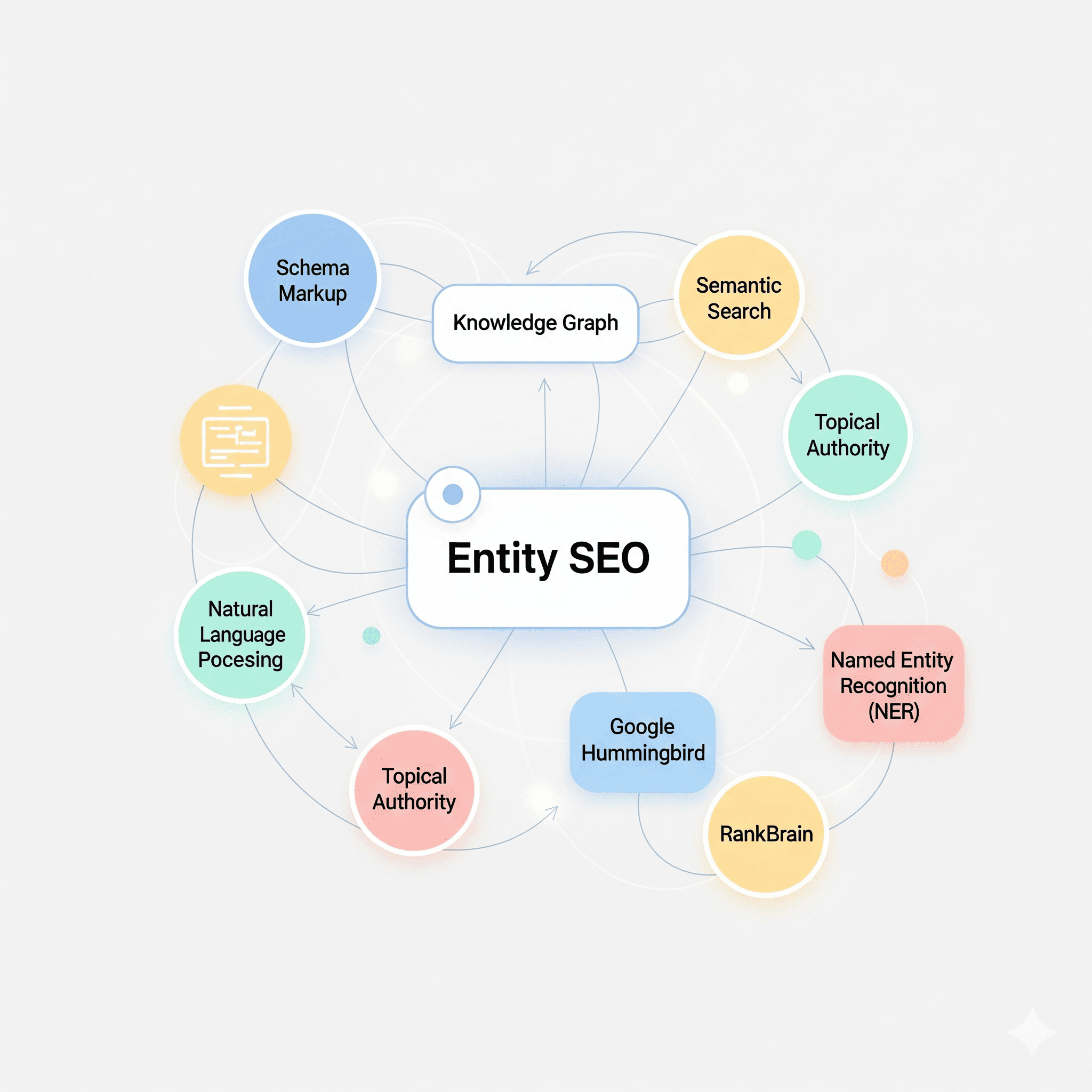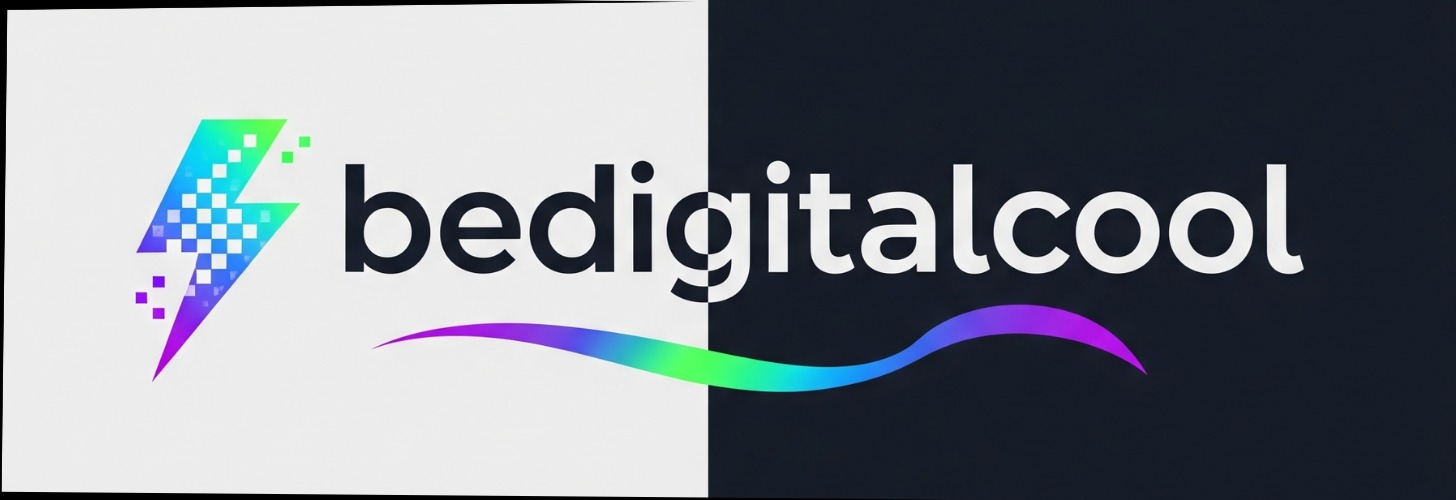
Introduction: Why SEO Feels Broken (Until You Discover Entities)
Ever feel like SEO is rigged against you?
You add keywords. You tweak headings. You pray your blog shows up on Google.
And yet, the results don’t come.
Here’s the truth: traditional SEO — keyword stuffing, backlinks, endless tweaks — is slowly dying. Why? Because Google has moved on.
Instead of matching words, Google is now matching meaning.
And that’s where Entity SEO comes in.
Entity SEO isn’t just the “next shiny hack.” It’s the backbone of how search engines like Google, Bing, and even AI models (like ChatGPT and Gemini) actually understand the world.
If you’ve ever asked:
- How can I future-proof my blog or website?
- How do I build topical authority that Google actually rewards?
- What’s the secret behind sites that dominate entire niches?
This article is for you.
What Exactly Is an Entity in SEO?
Here’s the simplest way to think about it:
- A keyword is a word you type into Google.
- An entity is a thing Google knows exists.
For example:
- “Apple” the fruit 🍎 is one entity.
- “Apple Inc.” the company 💻 is another.
Entities are stored in Google’s Knowledge Graph — a giant web of concepts, people, brands, and relationships.
So when you write content around entities instead of just keywords, Google doesn’t just see random words. It sees meaning, context, and authority.
👉 Example: Instead of writing a blog only targeting the keyword “best running shoes”, entity SEO would connect:
- Brands (Nike, Adidas, Brooks)
- Features (arch support, cushioning, durability)
- Activities (marathon, trail running, gym training)
This makes your content future-proof and builds trust with Google.
Why Entity SEO Matters in 2025 (and Beyond)
If you’re serious about digital content, here’s why this shift matters:
- Google → AI-driven Search
With tools like Google SGE (Search Generative Experience), AI answers are pulled from sources with strong entity authority. - Entity-Based Ranking Factors
Google rewards expertise, authority, and trust (E-E-A-T). Entities strengthen all three by showing relationships and depth. - Topical Authority = Rankings
Instead of chasing dozens of random keywords, entity SEO helps you own a niche by mapping out related topics and answering them better than anyone else.
💡 In short: Keywords get you clicks. Entities build you a brand
How to Apply Entity SEO Step by Step
Here’s a practical roadmap (even if you’re a beginner):
Step 1: Define Your Core Entity
Pick your main subject. Example: “Digital Products.”
This is your home base.
Step 2: Map Related Entities
Use tools like Google’s Knowledge Graph Search, Semrush Topic Research, or even a simple Wikipedia dive.
For “Digital Products,” related entities include:
- Platforms (Etsy, Gumroad, Teachable)
- Tools (Canva, ChatGPT, Notion)
- Business models (Courses, Ebooks, Templates)
- Audiences (Freelancers, Coaches, Side-hustlers)
Step 3: Build Content Around Relationships
Each post should:
- Answer questions (“How to sell digital products on Etsy”)
- Compare entities (“Etsy vs. Gumroad for beginners”)
- Show depth (“Top AI tools for creating digital products”)
Step 4: Strengthen Your Entity with On-Page Signals
- Use schema markup (Organization, Person, Product).
- Link internally between related posts.
- Mention recognized entities naturally in your writing.
Step 5: Reinforce with External Signals
- Get backlinks from other sites in your entity space.
- Appear in relevant podcasts, YouTube videos, or guest blogs.
Use consistent branding (same bio, images, and naming across platforms).
Real-World Example of Entity SEO in Action
Let’s say you run bedigitalcool.com (😉).
Your core entity = “Digital Entrepreneurship.”
Instead of writing 20 random blogs on “make money online,” you build a cluster around entities:
- Digital Products → Courses, Ebooks, Templates
- AI Tools → ChatGPT, Canva, Notion
- Platforms → Gumroad, Etsy, Shopify
- Methods → Organic Facebook, Email Marketing, SEO
Google starts to see your site not just as “another blog” but as a trusted authority in digital entrepreneurship.
That’s the power of entity SEO.
3 Actionable Tips to Start Using Entity SEO Today
- Stop chasing only keywords → Instead, ask: What entities and relationships matter in my niche?
- Audit your existing content → Are you connecting to broader concepts, or just stuffing in keywords?
Create a topical map → Use a whiteboard or tool like MindMeister. Visualize your core entity and all related entities.
Where Entity SEO Meets Your First Sale
Here’s the fun part: Entity SEO isn’t just for big brands.
If you’re a beginner trying to make your first sale online, this same principle applies.
Example:
- Core entity = “Etsy Digital Products.”
- Related entities = “Printable Planners,” “AI Templates,” “Passive Income.”
- Your content = Guides, reels, or blog posts connecting those entities.
When people search, they find you — not because you stuffed keywords, but because Google understands the relationships you’ve built.
That’s exactly the kind of clarity you’ll find inside The First Sale System — a step-by-step path to go from “stuck” to your first digital product sale.
Conclusion: The SEO of the Future Is About Meaning, Not Words
Entity SEO isn’t optional anymore. It’s how search, AI, and authority are built in 2025 and beyond.
When you master entities, you:
- Future-proof your site against algorithm shifts.
- Build deeper trust with Google (and your audience).
- Become the go-to source in your niche.
So, the question is:
👉 Will you keep chasing keywords?
Or start building an entity-driven digital empire that makes Google take note of your content and rank it above others.






